It’s Heart Health Month, so we’re celebrating ways to keep your ticker in tiptop shape. After all, keeping your heart healthy is key to leading a healthy lifestyle. According to the World Health Organization, cardiovascular diseases are the leading cause of death globally. According to the CDC, high rates of obesity and high blood pressure among younger people (ages 35–64) are putting them at risk for heart disease earlier in life. In fact, nearly half of all Americans have at least one of the top three risk factors for heart disease: high blood pressure, high cholesterol, and smoking. Lifestyle changes like regular exercise and eating heart-healthy food can go a long way towards preventing these conditions. Below are five nutrition strategies from our registered dietitian to help you eat heart smart.
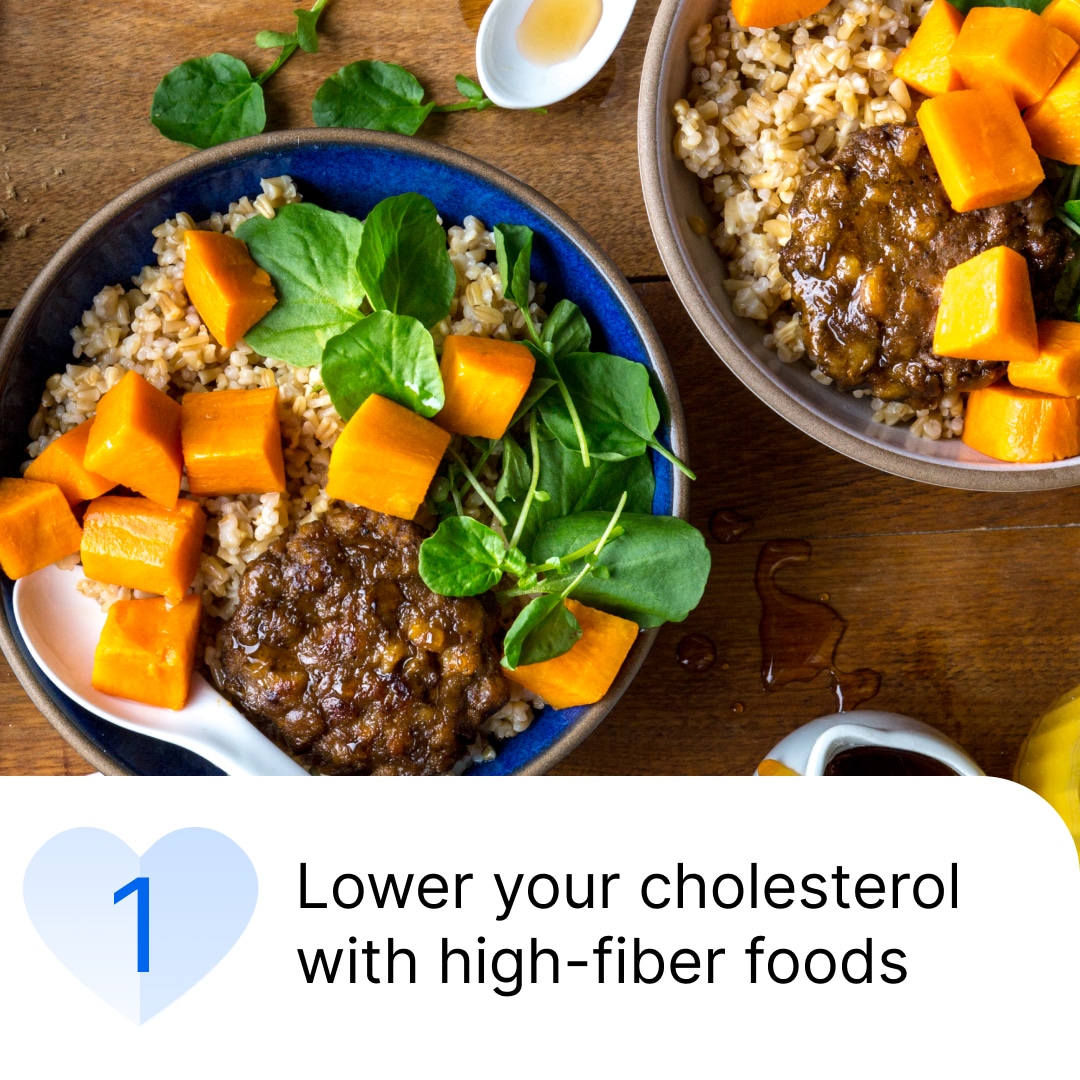
An article published by Harvard Health says the notion that a diet rich in fiber can prevent heart disease dates back to the 1970s, with evidence to support that idea piling up ever since. There are two types of fiber—insoluble and soluble—and foods high in soluble fiber in particular are known to help lower your cholesterol.
Heart smart tip: Swap out your sweetened breakfast cereal and eat oatmeal with fruit instead. Oats are high in soluble fiber.
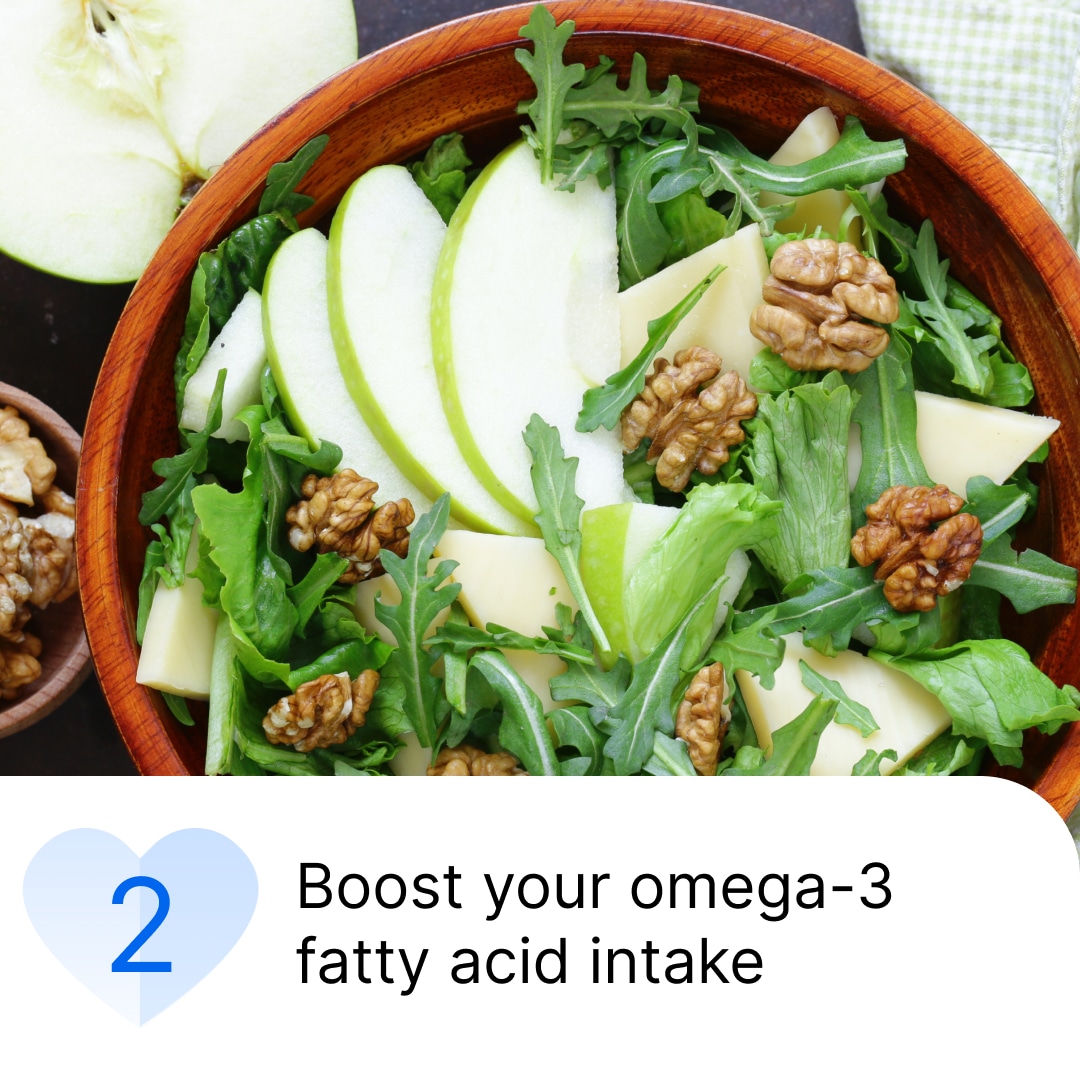
Omega-3 fatty acids, aka the “good fat”, are known to help your heart in many ways, including reducing inflammation in the body, lowering blood pressure, and helping to maintain healthy cholesterol levels. There are different types of omega-3s—those that come from fish and those that come from plants—but each brings their own set of benefits.
Heart smart tip: Top your salad with walnuts instead of croutons. Walnuts are a great source of omega-3 fatty acids—and they still satisfy any crunch cravings.
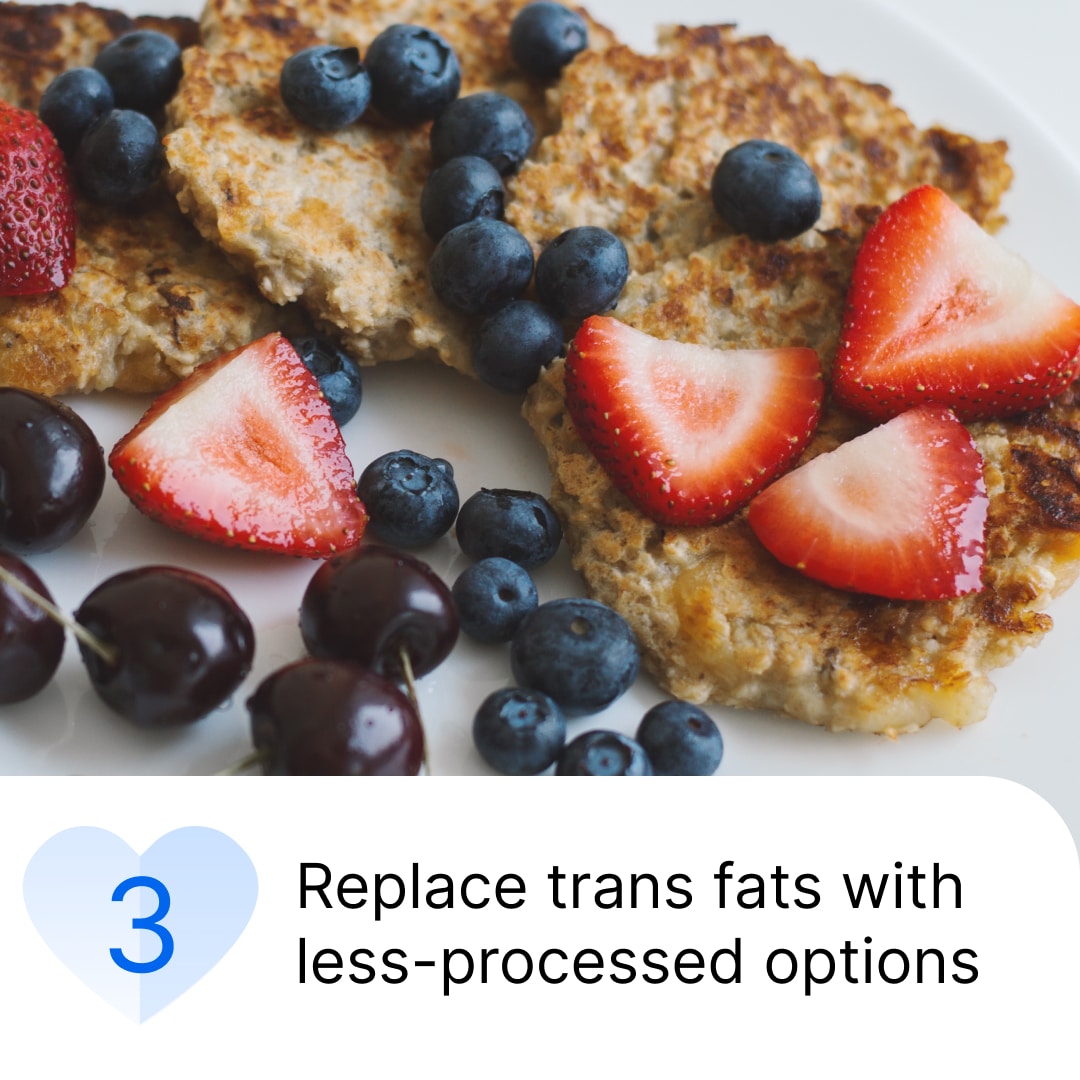
Trans fats, found in many processed foods, raise your LDL (bad) cholesterol and lower your HDL (good) cholesterol. These unhealthy cholesterol levels can cause build-up in your arteries, increasing your risk for heart disease. Luckily, there are lots of ways to lower your intake of trans fats.
Heart smart tip: For breakfast, choose a whole grain pancake mix versus a conventional mix. Whole grain mixes typically have less trans fats and add a dose of fiber for a double win. If you’re about to bake something sweet, ditch the canned frosting, which is high in trans fat, and consider making your own frosting with cream cheese, powdered sugar, and vanilla.
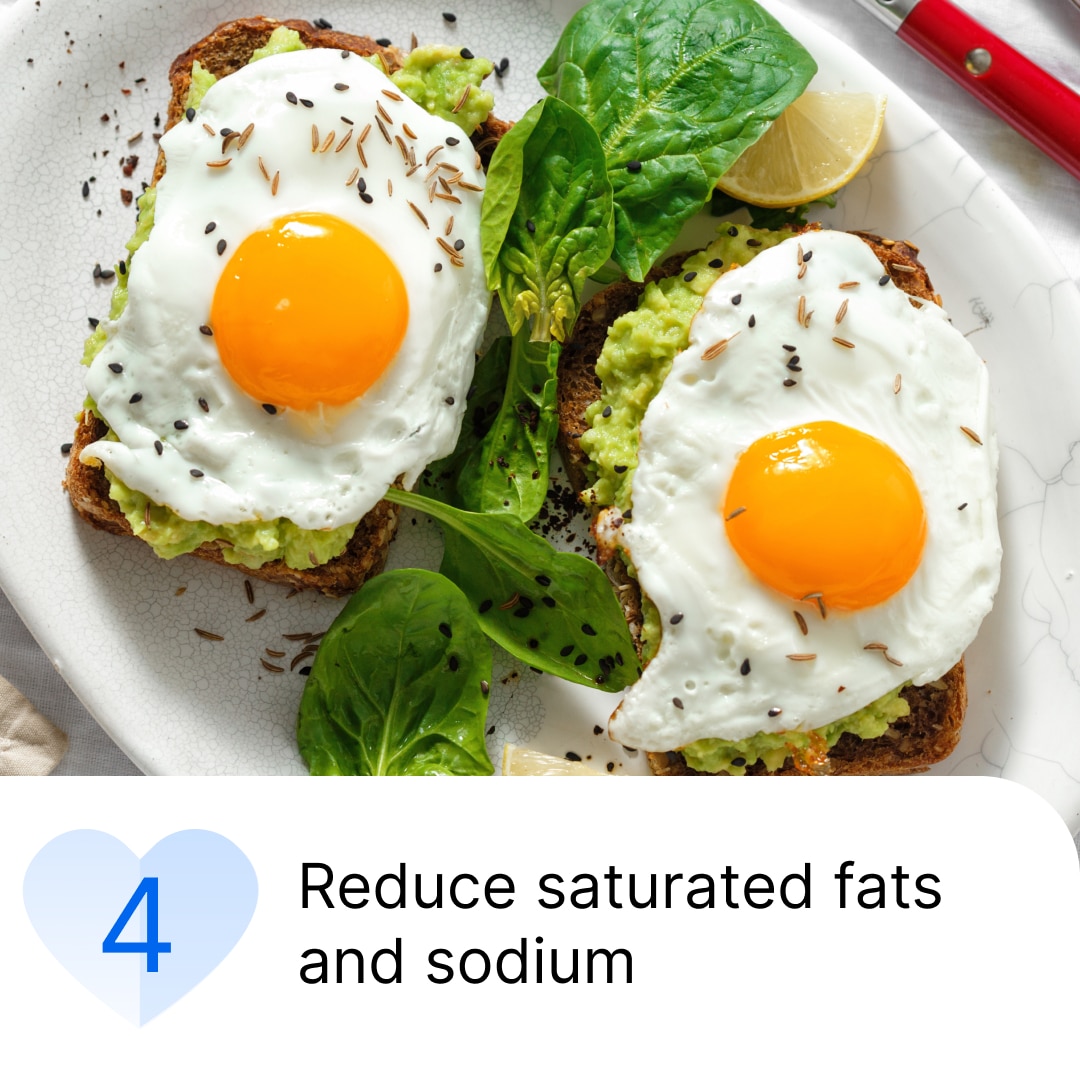
Eating too many saturated fats, which are found in meat and dairy products, can also raise your LDL (bad) cholesterol and lower your HDL (good) cholesterol. Additionally, too much sodium can increase blood pressure.
Heart smart tip: Craving eggs for breakfast? Choose avocado instead of the usual bacon or sausage to go with it. Breakfast meats are high in saturated fat and salt, while avocado has unsaturated fat and fiber, making it a better choice for your heart.
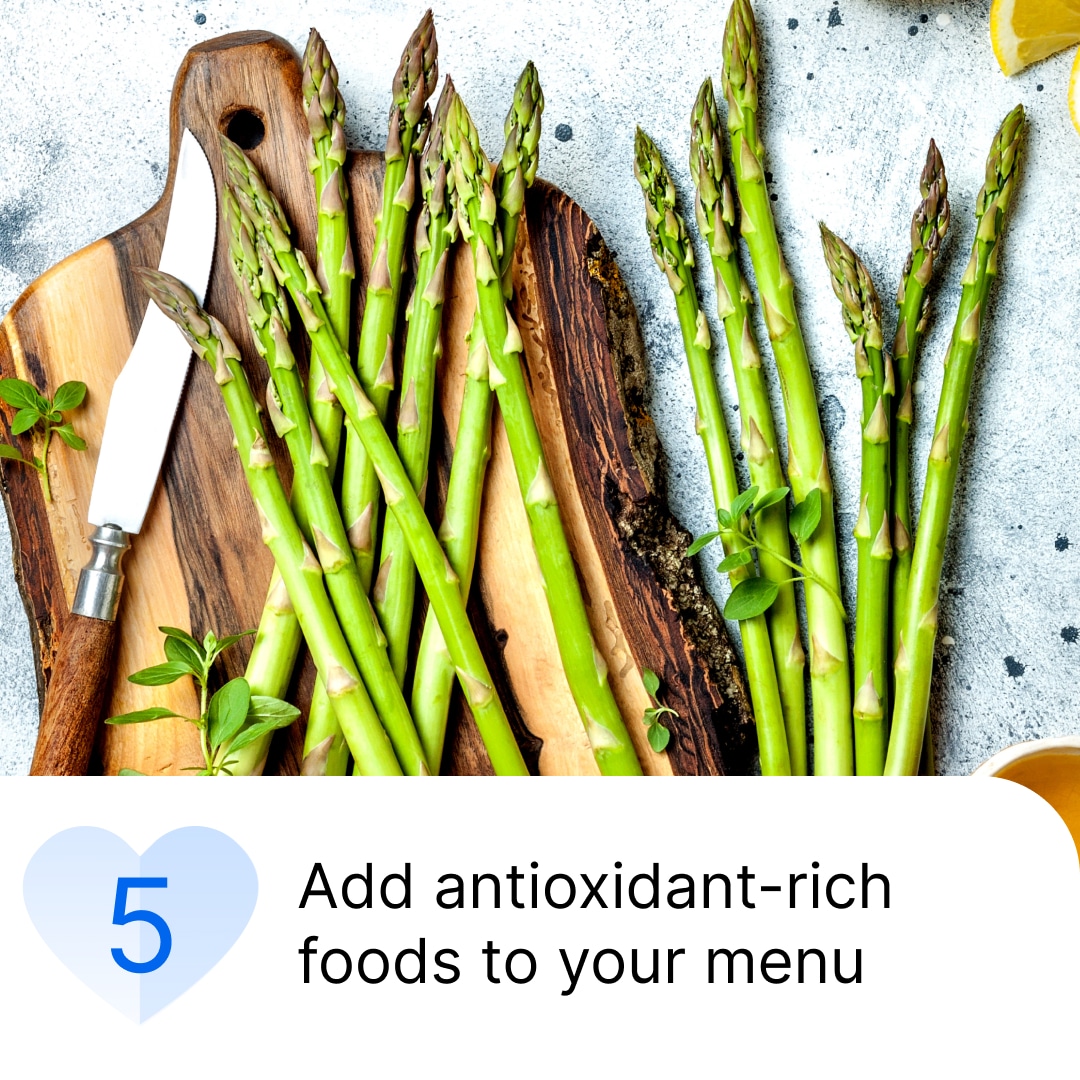
Heart disease is partially caused by inflammation, and a great way to combat inflammation is to add antioxidant-rich foods, like fruits and veggies, to your meals.
Heart smart tip: Add any veggie as a side to every dinner. Asparagus, sweet potatoes, broccoli all pack an antioxidant punch, plus any vegetable intake is associated with lower risk of heart disease. Time for dessert? Make the switch from ice cream to lowfat yogurt and berries. The berries provide fiber and lots of antioxidants, while the yogurt delivers probiotics, which help your immune system function properly. Your heart will thank you.
Originally published February 2022, updated February 2023
Ready to take the next step? Unlock MyFitnessPal Premium to access custom goal settings, quick-log recipes, and guided plans from a registered dietitian. Premium users are 65% more likely to reach their weight loss goals!




